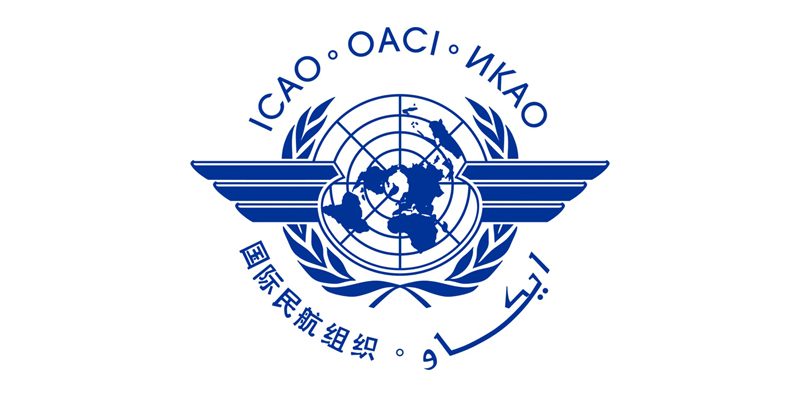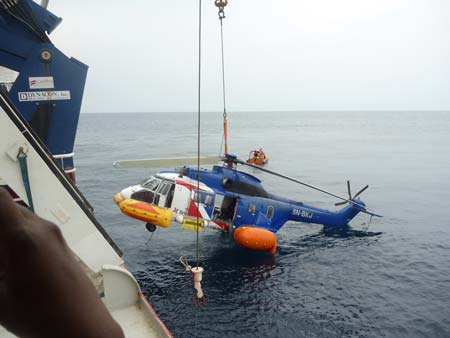Aviation
Air passenger traffic records 6.4% increase in 2015 – ICAO
Published
10 years agoon
By
Olu Emmanuel
…as freighting went sluggish
Isaac Tersoo Agber
Preliminary figures released by the International Civil Aviation Organization (ICAO) show the total number of passengers carried on scheduled flight rose to 3.5 billion in 2015, a 6.4 percent increase over 2014. The number of departures reached approximately 34 million globally, and world passenger traffic, expressed in terms of total scheduled revenue passenger-kilometres (RPKs), posted an increase of 6.8 percent with approximately 6,562 billion RPKs being performed. The aviation industry, composed of some 1,400 commercial airlines, 4,130 airports and 173 air navigation services providers (ANSPs), including the Nigerian Airspace Management Agency (NAMA), which will continue to play a critical role over 2016 in fostering the growth of tourism and trade. Meanwhile, over half of the world’s 1.1 billion tourists are transported by air today, while aircraft carry 35 percent of world trade by value. Final figures will be released in July 2016 in the Annual Report of the Council. International scheduled passenger traffic expressed in terms of RPKs grew by 6.7 percent in 2015, up from the 6.0 percent recorded in 2014. European traffic increased by 5.5 percent and accounted for the largest share of international RPKs at 37 percent while the Asia/Pacific had the second largest share with 28 percent and grew by 8.2 percent. The Middle East region moved 14 percent of world RPKs and recorded growth of 12.1 percent compared to 2014, while North America, also with a 14 percent RPK share, recorded 3.3 percent growth. Carriers in Latin America and the Caribbean managed 4 percent of world RPK traffic and recorded 7.9 percent growth, and Africa, with a 3 percent share, grew at a rate of 0.6 percent. In terms of domestic scheduled air services, overall markets grew by 6.9 percent in 2015. North America, the world’s largest domestic market with 43 percent share of the world domestic scheduled traffic, experienced around 4.7 percent growth in 2015. The Asia/Pacific region, which accounted for 39 percent of world domestic scheduled traffic, grew strongly by 10.3 percent in 2015 – mainly due to strong double digit growth in India and China. Low-cost carriers (LCCs) carried more than 950 million passengers in 2015, approximately 28 percent of total scheduled passengers. LCCs in Asia/Pacific represented 31 percent of total LCC passengers carried, followed by Europe with 30 percent and North America with 26 percent. The increasing presence of LCCs in emerging economies is considered to have been an important contributing factor to overall growth in passenger traffic. Despite sluggish economic growth in advanced economies and most emerging markets, global passenger traffic (RPK) growth in 2015 still increased by around one percentage point compared to the previous year. A nearly 40 percent decline in the average 2015 jet fuel price gave air carriers some flexibility to lower air fares and help stimulate this increase. Seating capacity offered by the world’s airlines in 2015, expressed in available seat-kilometers (ASKs), increased globally by around 6.1 percent. While capacity growth ranged from 0.1 percent in Africa to 13.8 percent in the Middle East, the average global passenger load factor improved by 0.5 percentage points over 2014; ranging from 68.9 percent for Africa to 83.5 percent for North America. Despite an increase in capacity offered in all regions, continued air carrier optimization resulted in average passenger load factors reaching 80.2 percent compared to 79.7 percent in 2014. World scheduled freight (air cargo) traffic, measured in freight tonne-kilometres (FTKs), grew by 2.2 percent in 2015 – less than half of the 4.9 percent growth rate registered in 2014. This is considered a reflection of the stagnating general economic situation worldwide. The international segment of freight traffic, which represents nearly 87 percent of total air freight, grew by around 2.9 percent after registering 5.2 percent growth in 2014. The scheduled international freight load factor declined from around 50 percent in 2014 to 47 percent in 2015, also mirroring generally weak world trade trends. 2015 also saw more and more air carriers improving their cargo capacity utilization by moving higher volumes of freight via passenger aircraft, rather than making use of dedicated freighters. Fuel accounted for nearly a third of air carrier operating costs in 2014. The significant decline in fuel costs and the positive effects of growth in traffic offset the mixed effects of a strong US dollar on the yields and unit costs of the air carriers. As a result, the airline industry ended 2015 with another record operating profit of around USD 60 billion and an operating margin of 7.6 percent far above 2014, which saw an operating profit of USD 42 billion and operating margin of 5.5 percent. More than a third of world airline profits in 2015 were generated by North American carriers. Looking forward to 2016, a further decline expected in oil prices, coupled with an improving economic scenario, should see passenger traffic and profits continue their upward trend.
Will Nigeria find a place amongst world chest beaters in the industry 2016 and beyond? It all depends on the calculus of the Buharists.
You may like


AFRA, ICAO break new grounds on aircraft recycling, lifecycle management


Bristow pays initial $30,000 to victims of lagoon crash


FG appoints Anasi acting NAMA boss


EFCC whisked NAMA boss, others over 5bn fraud


Aviation unions threaten to shutdown NAMA over non-approval of COS


NAMA goes 24/7 on radar control of the airspace
Trending

 Health1 week ago
Health1 week agoPolice open probe eight months after twin toddlers’ deaths following vaccinations

 Health1 week ago
Health1 week agoExpert warns smokers, people with high cholesterol face elevated diabetes risk

 Latest6 days ago
Latest6 days agoTwo more Rivers lawmakers call for halt to Fubara impeachment

 News7 days ago
News7 days agoJakande Estate residents allege illegal demolition, tasks Sanwo-Olu

 Business6 days ago
Business6 days agoRising fuel costs, policy push signal EV boom in Nigeria as industry predicts 2026 takeoff

 Business1 week ago
Business1 week agoFG, KPMG meet in Abuja to resolve disputes over new tax laws

 Football1 week ago
Football1 week agoAngola targets Super Eagles Coach Eric Chelle with lucrative offer

 Business1 week ago
Business1 week agoNCC initiates study on competition in Nigerian telecom industry

